The Golden Age of the Rooming House Matrons
Shaping student life, one boarder at a time
If you were to walk into the Booker House on University Avenue across the street from the Rotunda, you would find yourself in an office. It’s a nice office with columns and intricate moldings, but an office nonetheless. It would be hard, while looking at the cubicles and the inboxes, to imagine a grand piano toward the back, a crackling fire in the fireplace and, harder still, the soaring voice of a world-famous opera singer. The opera singer was Miss Betty Burwell Booker. Before the Booker House was an office building, she ran it as a rooming house, offering students room and sometimes board because the University opted not to do so. Its policy read: “it is inexpedient for the University to undertake the building of additional dormitories, or boarding houses for the accommodation of students, unless & until it shall appear that suitable & sufficient accommodations will not be afforded by private enterprise on reasonable terms.”

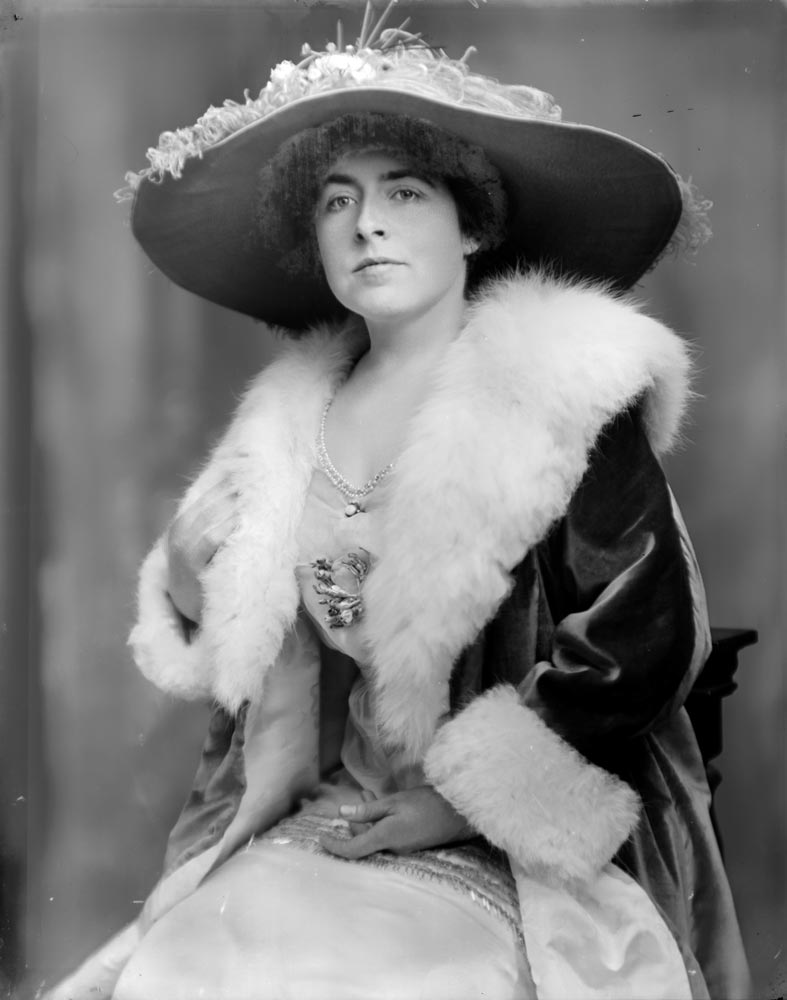
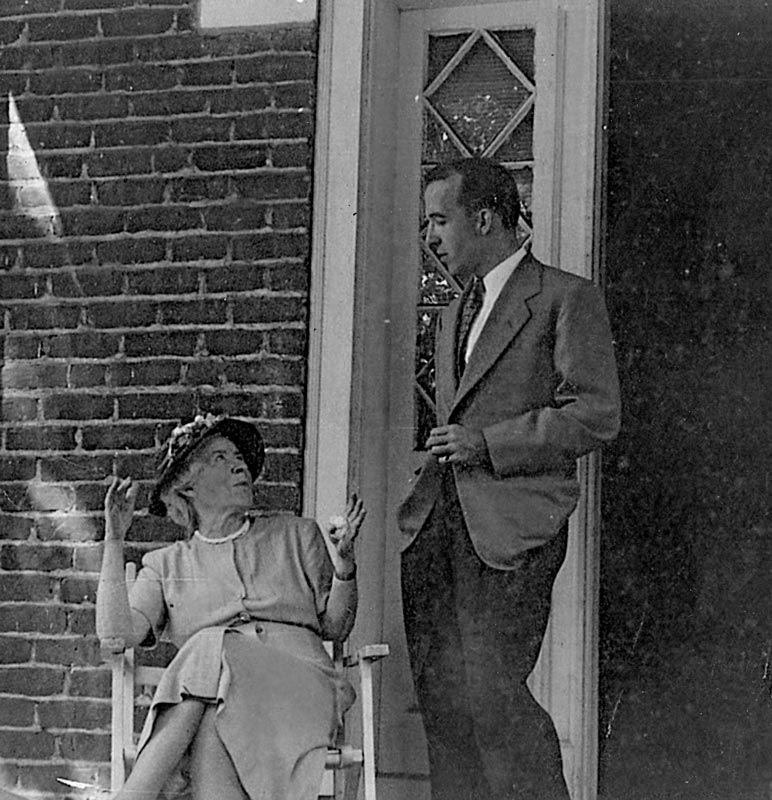
In the early part of the 20th century, with many families still suffering from the financial ruin of the Civil War, running a rooming house became one of the few acceptable ways for a Southern lady to earn a living. Not mere landlords, these women played the part of house mother, adoptive parent and stern Victorian governess, infusing their boarders with the grace and manners of true Southern gentlemen.
Between 1900 and 1910, numerous houses popped up on Chancellor Street and University Avenue. While not officially associated with UVA, they formed, with their visitors, salons and rules, a vital part of University culture.
“There’s only one place you want to live. You don’t even have to look around. You want to live at Miss Betty Booker’s.” That was the advice a friend gave Delavan Baldwin (Col ‘50) when he was an incoming English student. In the summer of 1944, Baldwin was looking for a place to stay. When he first ascended the steps to the Booker House, he had little idea of the enduring friendship he would form with the extraordinary woman inside.
Booker was born in Richmond in 1875, a descendant of the prominent Page family. In 1901, in New York, she began private music instruction that would kick off a famous international singing career. She studied in Paris and Berlin, and sang with a popular European troupe called the Melba Company. As her reputation grew, she was invited to sing for the British royal family. Her most well-known performance was the coronation command performance for King George V and Queen Mary at the Royal Opera at Covent Garden, of which the Yorkshire Post for Dec. 11, 1911, reported, “Miss Betty Booker was the soprano and a purer voice it has seldom been our pleasure to hear.”
But to her tenants, she was simply “Miss Betty,” the friendly if slightly reserved proprietress of their rooming house.
Just before World War I, Booker returned to the United States, where she toured and gave performances in Virginia and throughout the South. Several years later she moved to Charlottesville to help her mother, Lucy Page Booker, who was running a house on Madison Lane on a lot the family had purchased for $32 not long after they arrived in 1901. When her mother died, Booker, then middle aged, formally took over. She stayed in a large room on the first floor, and took her cue from her Victorian mother, demanding the best behavior from the young men who lived there.
Alexander “Sandy” Gilliam (Col ‘55), currently the University protocol and history officer, lived at the Booker House from 1952 to 1953. He remembers an incident when he and some friends came home from various athletic pursuits only to realize that they’d failed to learn the songs they were to perform that night as part of the pledging process to a fraternity. Tommy Buist, one of the group, remembered that there was a grand piano in the parlor of Booker’s rooms and suggested they gather around and practice the songs there. In the midst of the singing, Booker charged out of her inner room, angry that they were using the piano without permission. “She gave us perfect hell,” says Gilliam. “She said, ‘Bobby Page and Sandy Gilliam, your parents would be horrified. Tommy Buist, you are from Charleston and know better. Rebel Rowe, you are from Washington and thus don’t know better!’”
Baldwin remembers a prank played on Booker when a boarder put lighter fluid under her door and set it on fire. The flame flared into her room and Booker was understandably frightened. She called Dean Ivy Lewis to help deal with the incident. “One thing you need to understand about Booker is that she was as much a part of the University as she was a citizen of Charlottesville,” he says. Some people refer to a “town versus gown” divide in Charlottesville, but Booker was beloved by both. “She was part of the town community, but she knew lots of people on the faculty.” Dean Lewis assembled all the students in Booker’s living room. “The dean asked ‘Who did this? Who set this fire? What was the motive?’” Finally, the boy came forward. He was asked to leave the University.
But Baldwin’s enduring memories of Booker have to do with the quiet friendship they formed and the way she took him under her wing. Then in her early 70s, Booker was still keenly interested in her young tenants. When she found out that Baldwin was taking a number of classical music courses, she told him about her singing career and invited him to spend more time with her. “On Saturday afternoons I would sit with her in her living room and we would listen to the Metropolitan Opera on the radio,” he says.
Booker asked him to attend a service with her at St. Paul’s Episcopal Church, which was next to her rooming house. “She said she wanted me to experience that, that she sang in the choir, and every once in a while she’d sing a solo.” What did he think of her singing? “Well,” he says, “I’m an Episcopalian now.”

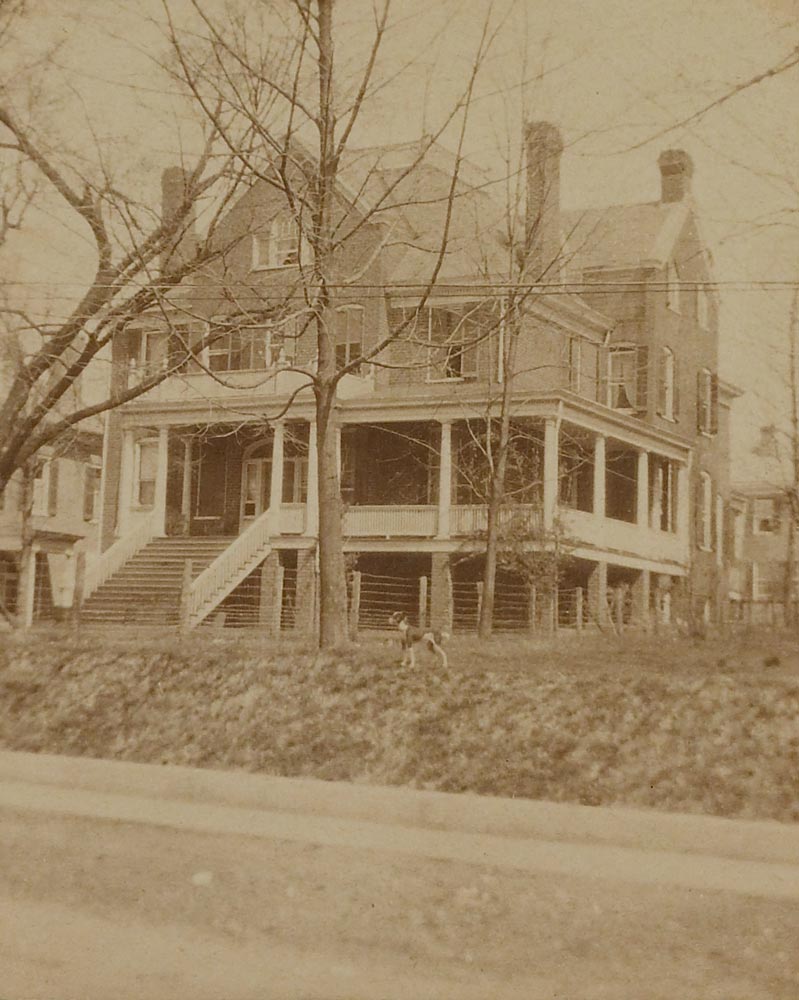
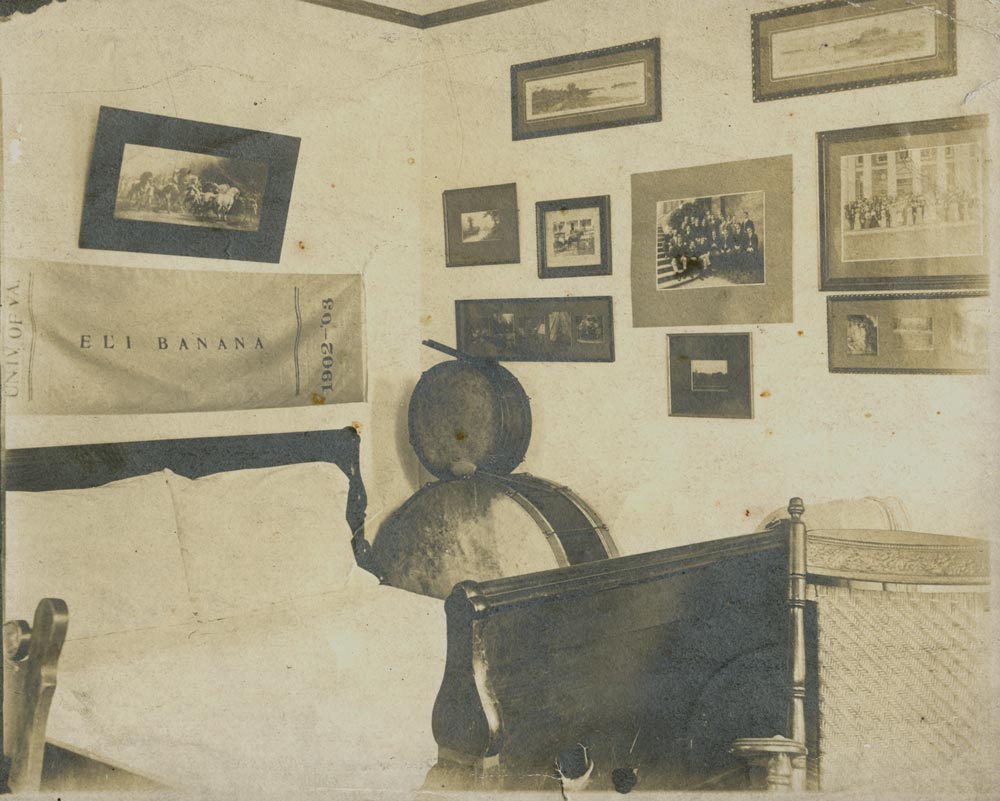
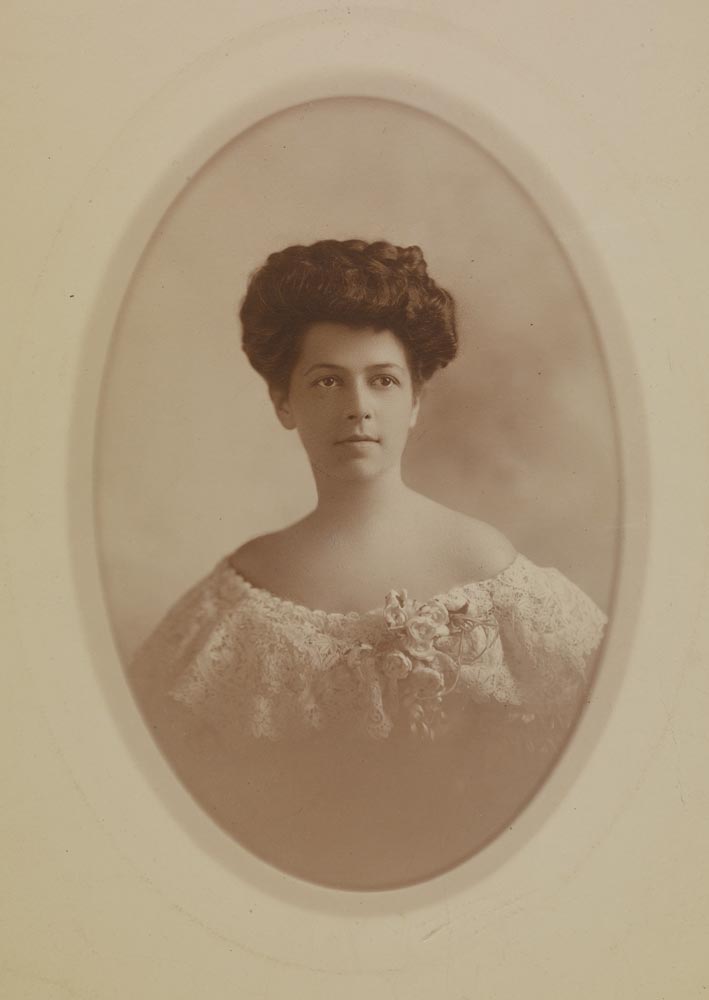
“They were women of gentle birth and slender means,” says Gilliam, who had the privilege of staying at not only the Booker House, but the house next door, run by another highborn yet underfunded proprietress: Miss Betty Cocke. First cousin to Betty Booker and descendent of Gen. John Hartwell Cocke—a Jefferson ally and one of the founding fathers of the University—Cocke and her sisters Louise and Lucy took over the property on University Avenue from a local pharmacist and doctor.
Along with Booker House, Betty Cocke’s house was considered one of the best places to live, and she received a great many applications from young men hoping to secure a room. As a result, she got to pick who she considered the most promising students. “I dare say,” said Edward Van Scott (Col ‘43, Med ‘45), a former tenant, in a letter to his daughter, “there are many of the 7 Society who lived at Miss Betty’s.’”
“Probably half the guys who lived there were people whose families she knew,” says Gilliam. “I did have an introduction because she knew my mother, but in reality, I think they would take anyone who looked respectable.”
Once you were in the house, you could expect minimal surroundings and plentiful advice. “We each had a desk light and a bed light and record players and a hot plate, and everything was plugged into a light fixture that hung down from the ceiling,” says Gilliam. Cocke advised her young men on what fraternities to pledge, which girls to date and what courses to take. When they complained to her about professors, she used what she knew of the professor’s background to help the student see them with more compassion.
The households included staff members, often African Americans. Gilliam remembers a “general factotum” named Floyd. He helped with the housekeeping and laundry and was a general errand runner. Next door, Booker employed a man named Granville to do the same thing. “Both were fixtures around town as bartenders at Alumni Hall and at parties,” he says. A woman named Winnie worked for Cocke for many years as a cook and maid. Cocke kept a portrait of her among photographs of her family.
“Miss Betty practiced selective hearing,” says Gilliam, “which I expect was necessary in a house full of college students.” In one incident, he recalls wearing a pair of shoes with hard rubber heels and walking up the stairs one at a time instead of his usual two. “Miss Betty popped out of her door,” he says. “She thought the shoes sounded like a lady’s high heels, and women, of course, were not allowed above the first floor.”
So adored was Cocke by her students and friends that they purchased a Model-T Ford for her. She became known by it, and was often seen tooling around town in the car, which was dubbed the “Struggle Buggy.”
Ronald T. Buckingham (Col ‘57, Law ‘60) lived at a rooming house on Chancellor Street from 1954 to 1957 run by Mary Lucille Palmer, and he remembers a relaxed atmosphere. “We never had any nitpicky rules,” he says. “The Honor Code was really followed. There were no questions about it; you just didn’t do certain things.
“We weren’t angels, mind you,” he says, recalling how he and his friends would attempt to make apple cider in gallon jugs in their rooms. “We would put something in it to harden the cider. It was supposed to be done in a dark place, and a lot of times you’d leave it there and forget about it and it would explode.”
The house itself was an antebellum Victorian with a wraparound porch on the second level and, inside, a wide staircase. But Buckingham remembers it being somewhat bare. “It was not very fancy, I can assure you,” he says. “All the beds were metal and just sagged. Each floor had two bathrooms, a shower stall, a sink and a toilet. Of course, everyone wanted to shower at the same time.”
Of Palmer he says, “She was a nice old lady. In the three years that I was there, I don’t remember her ever coming out and saying, ‘Y’all are making too much noise.’”
In the first half of the century, the rooming houses thrived along Chancellor Street, University Avenue, Rugby Road and Madison Lane. Like Booker’s and Cocke’s houses, many of them were owned by women whose names and families run like vibrant threads through Virginia’s history.
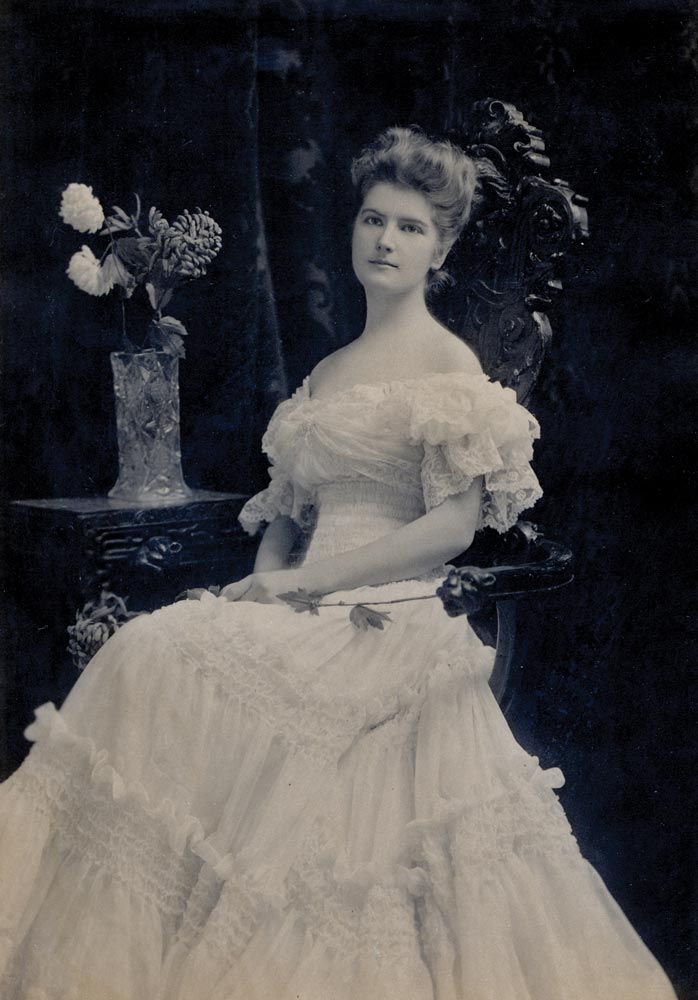
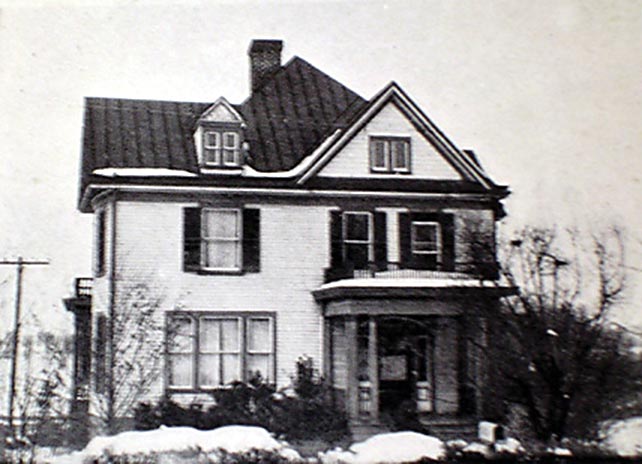
At 503 Rugby Road, one could find the house of Mrs. Mary “May” Speed—a descendent of George Mason, author of the Virginia Bill of Rights—who, before she moved to Charlottesville, was appointed by President Woodrow Wilson to the National Board of Review, which picked movies to be shown to American troops abroad. She also lectured for the Film Selection Commission and was assistant principal at Gunston Hall School in Washington, D.C., for three years after her husband died in 1915. In 1928, she bought a two-story wood frame house on Rugby Road for $24,500. Her love of the arts was reflected in the creative arts gallery she opened in a large parlor on the first floor, of which the Richmond Times-Dispatch reported, “Her exhibits open with parties which are truly gala; even if you don’t care about art, you can’t afford to miss the parties, because there is good food and drink and entertaining company, and the first thing you know you are wanting to buy a picture.”
Eliza Mason Page, also a descendent of George Mason, opened her business in the previous home of Richard Anderson, founder of the Anderson Brothers Bookstore. The residence, which housed around 40 students a year, had a large backyard and a black, cast iron fence close to West Main Street, and was known as “The Morgue,” for the silence Page imposed. She also had students sign contracts stating they wouldn’t drink or gamble in her home. One father objected, “No son of mine is going to sign a pledge to be a perfect gentleman for nine months!”
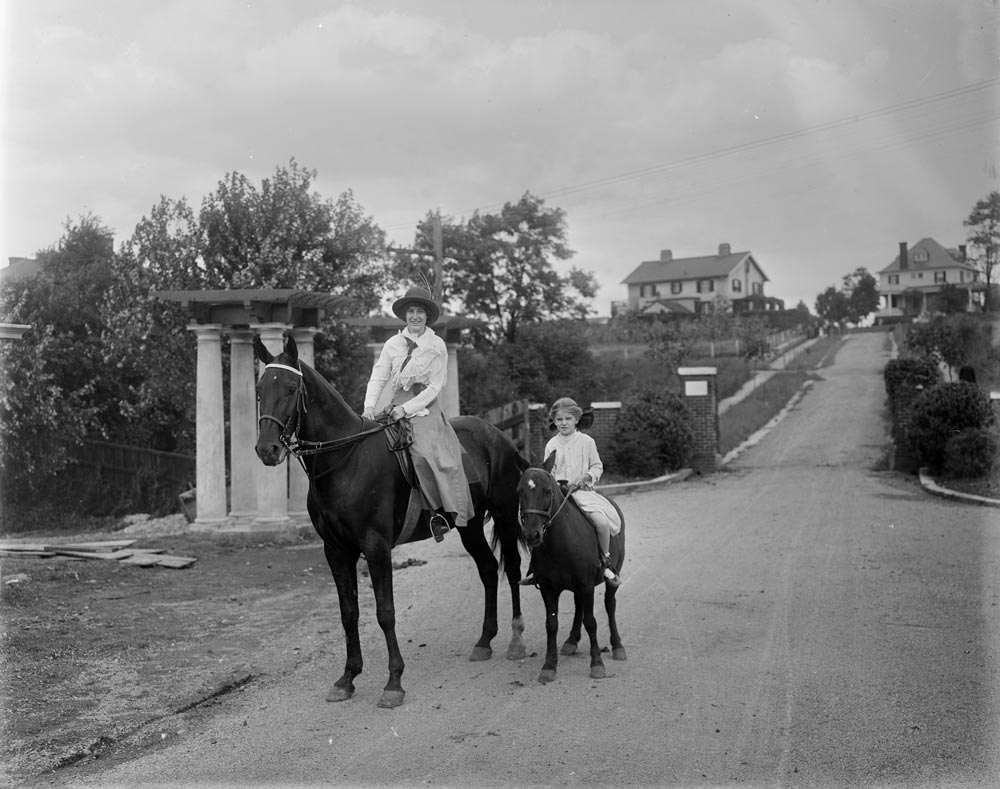
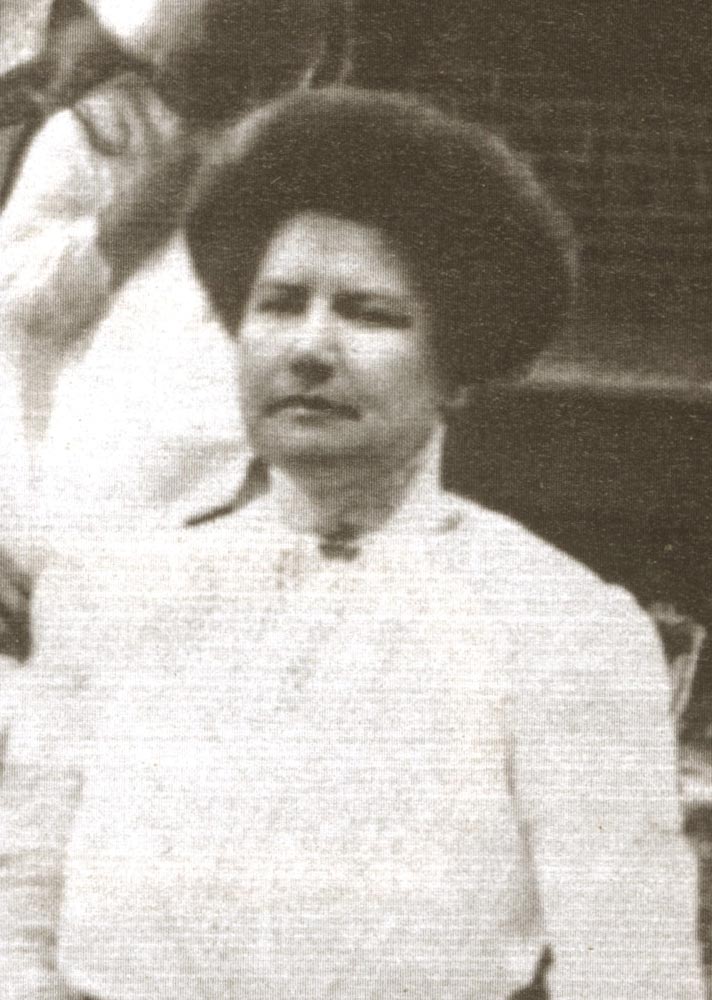
Page’s daughter, Ellie Wood Page, looked up to the tenants and thought of them as big brothers. One afternoon, they stuck a sign onto a telephone pole at the corner of the street that said, “Ellie Wood Avenue.” The sign was eventually taken down, but the name stuck.
The Doswell sisters, Sally and Norma, ran a house on Chancellor Street. Also from a prominent Virginia family, their father is said to have served on Gen. Robert E. Lee’s staff in the Confederate Army. Sally Doswell co-authored books on local history and served as president and historian for the local chapter of the Daughters of the Confederacy. The sisters ran the rooming house well into their 80s.
About the atmosphere of the houses, George Green Shackelford (Col ‘43, Grad ‘55), who lived at Cocke’s house from 1939 to 1940, said, “The ambience of the fashionable rooming houses was autumnal, golden, a kind of belle époque, a farewell to innocence. Of course, one wore a hat, jacket and tie under almost all circumstances and one scorned those who cut across the grassed areas.”
The end of the era of the rooming houses began in the 1950s, when UVA built more dorms, and it became mandatory for first-year students to live in them. The Booker House was sold to a landlord, then to St. Paul’s Memorial Church a year after she died in 1967. Shortly thereafter, it was rented to the Delta Tau Delta fraternity, which established the “Betty Booker Beach and Cabana Club” on the front lawn, where they served cocktails and had a one-hole golf course. The building is now the home of the University’s executive vice president and provost’s offices.
Some houses were abandoned and demolished, many others, such as the house of Mary Lucille Palmer, were adopted by sororities in the late 1970s and remain homes for organized sisterhood today. The Kappa Kappa Gamma sorority stands on the site of Mrs. Speed’s house. Cocke’s home was demolished and the furniture auctioned a year after her death in 1974. Cocke always kept up with her students after they’d left her house. Many of them visited her in the hospital in her old age, remaining “Miss Betty’s Boys.”
Where Students Live Now
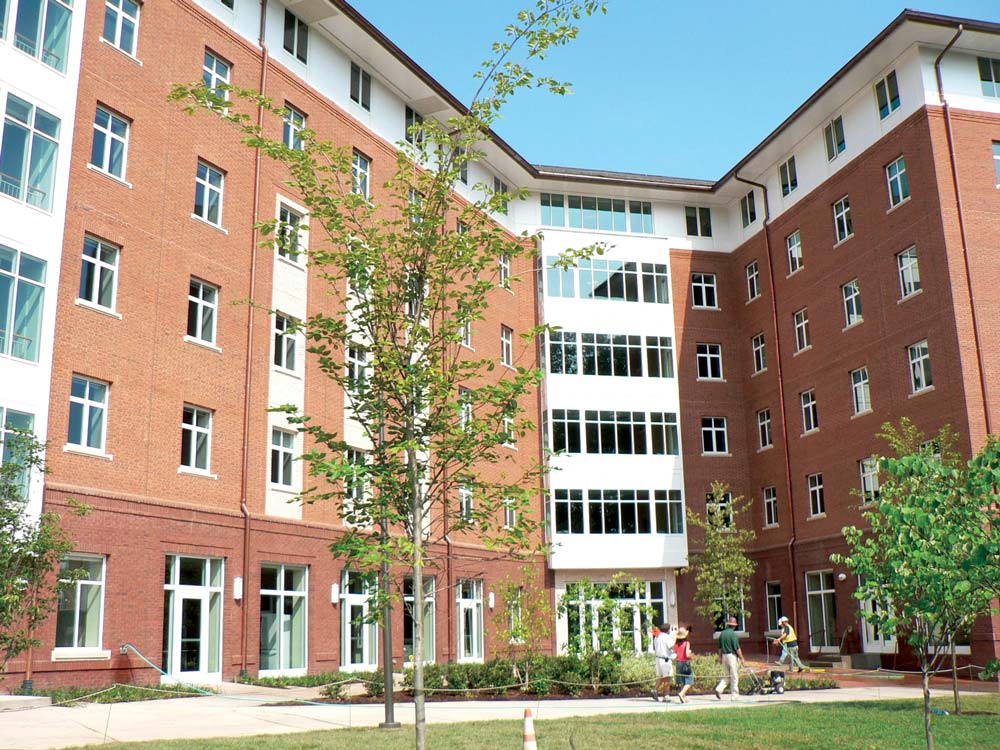
This year, two new dormitories—Watson-Webb and Balz-Dobie—opened their doors to first-year students. They stand on the same land where older dormitories were recently demolished. “Indeed, 95 percent of the old dormitory materials were recycled and some of the same materials were used as fill when we built the new dorms,” says Kevin Wade, assistant director of accommodations.
Though the new dorms have modern amenities—flat-screen TVs, laundry machines that email students when their loads are done—that the rooming houses lacked, they share an emphasis on community living. The first floors of the new dorms are entirely common space and, as in the rooming houses, student rooms are on the upper stories. Resident advisers live in closer quarters with students than the rooming house matrons, but their role is similar. “RAs foster community and provide access to resources,” says Wade. “Enforcing rules is not their main job; instead the relationship is a nurturing one.”
Instead of the Victorian decor of the rooming houses, Watson-Webb is designed with a contemporary color palate of earth tones, and Balz-Dobie’s colors are cool blues. The two buildings are the first of a total of seven new dormitories the University is constructing near Observatory Mountain.
How is residential life changing for students in the 21st century? Wade says that as students use smaller devices to store media and laptop computers, they become more mobile. “As we plan for how students use space, we’ve realized that students no longer have giant desktop computers tying them to their rooms. They can work anywhere.”